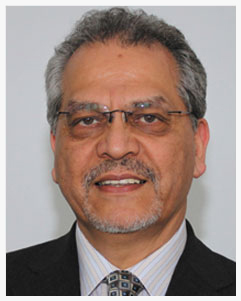For maatribhoomi and all of her children
Undeniably, NRNs in various parts of the world were feeling a strong urge to do something for their maatribhoomi Nepal and the Nepali people, to give back, to help out ‚Äì without expecting anything in return, out of a sense of duty and gratitude. A Nepali — no matter where his/her karmabhoomi is, no matter when he/she left Nepal, no matter what propelled them out of the country ‚Äì remains forever a Nepali at heart. We need only close our eyes and feel our hearts to realize this.
After all, janani janmabhoomischa swargaadapi gariyasi (mother and motherland are dearer than heaven).
The huge support we received from NRNs everywhere and the larger-than-expected turnout at the conference convinced us that we had made the right decision at the right time. Nepali press welcomed the conference and the launching of NRNA and supported our effort in positive and encouraging terms. Many civil-society, political and government leaders, business people, academics, professionals and ordinary Nepalis in the country expressed their strong support for our efforts. Especially important was the maximum possible support we received from the Federation of Nepali Chambers of Commerce and Industry (FNCCI).
Undeniably, and not unexpectedly, however, many Nepalis came forward expressing their doubts and suspicions about our motives and intentions. Some did not seem to appreciate our interest and even presence in our motherland. To these, the NRNs and their NRNA had ulterior motive and hidden agenda. Many prejudiced views about NRNs and stereotypical biases were expressed, for instance:
“NRNs want dubai haatmaa laddu” (have their cake and eat it too); “NRNs are here just to take what advantage they can”; “NRNA is only for business people with vested interests” and so forth.
To all doubting Thomases, our short and sweet, yet respectful, response was to point up NRNA’s motto for Nepalis by Nepalis – not more, not less – and ask to be judged by our action. Among the NRNs, however, there did not seem to be any doubt or ambivalence about the purpose of our meeting, the mission and goals of NRNA and our legitimate interest in Nepal and Nepalis.
Doubts and suspicions about NRNs were outweighed by the welcome and support we received. An example of the press support for our effort was an analytical report in the prominent weekly Nepali Times. After analyzing NRNA’s mission, goals and programs and activities, the report concluded that the organization’s success was assured largely because of the direct involvement in it of a few “veteran NRNs.” The veterans referred to included Dr Upendra Mahato and Jiba Lamichhane from Russia, Sharada Thapa from the US and Naresh Koirala from Canada and others. Their conclusion has been proven right.



